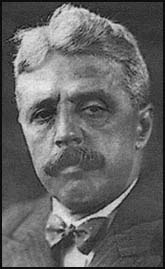Arnold Bennett (Arnold Bennett)

Arnold Bennett won a literary competition hosted by Tit-Bits magazine in 1889 and was encouraged to take up journalism full-time. In 1894, he became assistant editor of the periodical Woman. He noticed that the material offered by a syndicate to the magazine was not very good, so he wrote a serial which was bought by the syndicate for £75 (equivalent to £10,000 in 2015). He then wrote another. This became The Grand Babylon Hotel. Just over four years later, his first novel, A Man from the North, was published to critical acclaim and he became editor of the magazine. From 1900 he devoted himself full-time to writing, giving up the editorship. He continued to write journalism despite the success of his career as a novelist. In 1926, at the suggestion of Lord Beaverbrook, he began writing an influential weekly article on books for the Evening Standard newspaper. As well as the novels, much of Bennett’s non-fiction work has stood the test of time. One of his most popular non-fiction works, which is still read to this day, is the self-help book How to Live on 24 Hours a Day. His diaries have yet to be published in full, but extracts from them are often quoted in the British press.
In 1903, Arnold Bennett moved to Paris, where other great artists from around the world had converged on Montmartre and Montparnasse. Bennett spent the next eight years writing novels and plays. Bennett believed that ordinary people had the potential to be the subject of interesting books. In this respect, an influence which Bennett himself acknowledged was the French writer Maupassant whose Une Vie inspired The Old Wives’ Tale.” Maupassant is also one of the writers on whom Richard Larch, the protagonist of Bennett’s first (and obviously semi-autobiographical) novel, A Man from the North, tries in vain to model his own writing. In 1908 The Old Wives’ Tale was published and was an immediate success throughout the English-speaking world. After a visit to America in 1911, where he had been publicised and acclaimed as no other visiting writer since Dickens, he returned to England where Old Wives’ Tale was reappraised and hailed as a masterpiece. Arnold Bennett separated from his French wife in 1921 and fell in love with the actress Dorothy Cheston (b. 1896) with whom he stayed for the rest of his life. She changed her last name to Bennett although they were never married. They had one child, Virginia, born in London in 1926. Bennett won the 1923 James Tait Black Memorial Prize for his novel Riceyman Steps. Bennett died of typhoid at his home in Baker Street, London, on 27 March 1931, after returning from a visit to Paris where, in defiance of a waiter’s advice, he had drunk tap water in a restaurant. His ashes are buried in Burslem cemetery.
Born
- May, 27, 1867
- United Kingdom
- Hanley, Staffordshire, England
Died
- March, 03, 1931
- United Kingdom
- London, England
Cause of Death
- typhoid
Cemetery
- Golders Green Crematorium
- Golders Green, London, England
- United Kingdom



